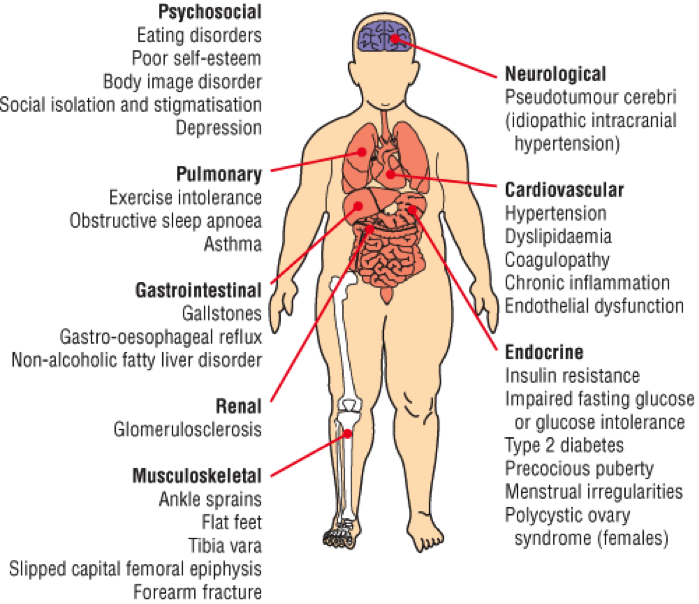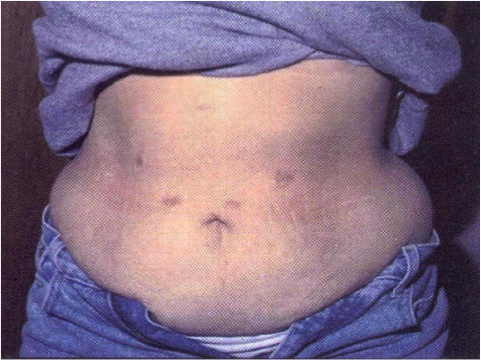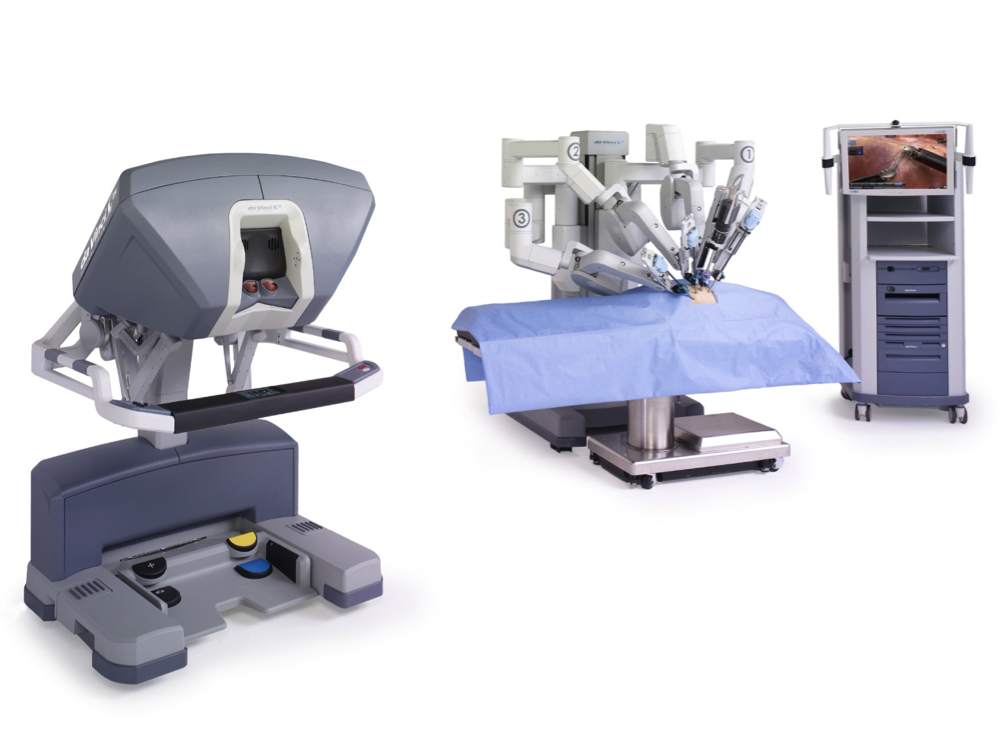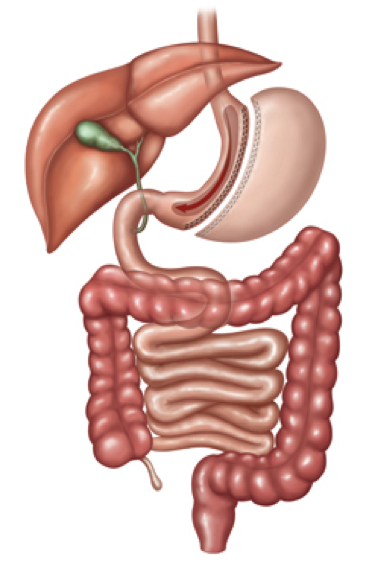|
Bariatric (Weight Loss) Surgery |
||||||||||||||||||||||
|
There is so much to gain…… by losing Dr Sudhir Kalhan |
||||||||||||||||||||||
|
According to estimates from WHO &ICMR, Obesity and Diabetes Mellitus are the two fastest growing epidemic of the Asian Sub Continent. If nothing is done, then we may have the dubious distinction of being the Diabetic Capital of the world. A young, vibrant and energetic nation may be bogged down with a huge health burden due to Diabesity.Although most patients can be managed by life style modifications and medical support; there is a specific subset of morbidly obese and super obese patients who will benefit only from surgery. Bariatric Surgery is the only modality which provides sure, effective and permanent weight loss. |
||||||||||||||||||||||
|
Why Bariatric Surgery? |
||||||||||||||||||||||
|
People who have struggled for many years with the illnesses and discomforts related to severe obesity often give up hope. They know what it is like to persevere time and again with diets and programs that fail to deliver long-term results. Nonetheless, giving up is not an option. Their lives depend on successfully treating obesity and maintaining a healthy weight throughout life. If you are someone for whom non-surgical procedures have failed to provide sustained weight loss, you can be evaluated for, and if appropriate, undergo lifesaving bariatric surgery. In cases of severe obesity, bariatric surgery is the only proven method of achieving long-term weight control |
||||||||||||||||||||||
 |
||||||||||||||||||||||
|
What is Obesity and the related health problems? |
||||||||||||||||||||||
|
Obesity is a life-long, progressive, life-threatening condition marked by excess body fat, which can significantly reduce life expectancy. When weight increases to an extreme level, it is called morbid obesity, and is a chronic condition with numerous medical, psychological, social and economic consequences. The more obese you are, the more likely you are to have health problems. You are more likely to develop health problems; such as,
|
||||||||||||||||||||||
 |
||||||||||||||||||||||
|
How do you measure the degree of obesity? |
||||||||||||||||||||||
|
Weight is commonly measured in Kilograms. The degree of obesity is better measured as BMI (body mass index) which is a ratio of weight and height [Wt in Kg / (Ht in metres)2]. Obesity can be graded as: |
||||||||||||||||||||||
BMI CALCULATOR |
||||||||||||||||||||||
 |
||||||||||||||||||||||
|
What is the medical treatment of Obesity? Adequate diet and exercise are the key components. A recommended balanced diet should provide 1200-2000 Calories a day depending upon the person’s lifestyle. A diet restriction of 500Cal/day is expected to cause a wt loss of approx 1lb/week. A regular exercise pattern is of immense importance. A duration of 30-45 minutes per day, at least 3-5 days/week is recommended by most. Even if you are planning for surgery, an exercise plan is a must. Medicines for obesity have come and gone because of their undesired effects. At present, the only FDA approved drug is Orlistat. Even this is not free of side effects and causes only upto 10% weight loss in six months, most of which is regained after stopping the drug. What is the need to undergo surgical treatment of obesity? Various studies all over the world have proved that surgery is the most desirable and durable treatment option for morbid obesity. With the current surgical procedures, a loss of 68-78% excess body weight is lost. The most dramatic loss is in the first six months. The procedures like Roux-en-Y Gastric Bypass and Sleeve gastrectomy reduce food intake because of early filling as well as decreased hunger. This avoids ‘starvation’ to get slimmer. Does Obesity Surgery resolve diseases like diabetes, hypertension, sleep apnoea etc.? Yes. Bariatric Surgery has shown to cure diabetes in 83% of patients and reduce the dose of Insulin & OHA in 17%. The control of hypertension also becomes better. Obstructive sleep apnoea patients show a remarkable improvement. Am I a candidate for surgical treatment for obesity? If you are an Indian/Asian and have BMI of 37.5 or more, you are a candidate for Bariatric Surgery, as it is the only durable option at this stage. If you have Hypertension / Diabetes / Obstructive Sleep Apnea / Osteoarthiritis knee or have any other obesity related diseases, surgery is recommended at a BMI of 32.5 or more. It is a serious undertaking, not a cosmetic procedure. Anyone thinking about undergoing this type of operation should understand that the surgery will cause a reduction in the number of calories you may consume, and you must commit to lifestyle and dietary changes to derive maximum benefit from the procedure. The surgery in not a cure—it is only a tool. Success is possible only with your full cooperation and commitment to behavioral change and medical follow-up, which must be carried out for the rest of your life.
How Does Bariatric Surgery Work? Bariatric surgery promotes weight loss by restricting food intake and, in some procedures, altering the digestive process. As with other treatments for obesity, the best results are achieved when combined with healthy eating behaviors and regular physical activity. If bariatric surgery is the right choice for you, your surgeon will discuss with you the procedures offered at Sir Ganga Ram Hospital and will explain which would achieve the best outcomes for your individual circumstance. What is laparoscopy? Laparoscopy (also known as minimally invasive surgery) is a surgical technique in which a high-definition camera and very fine surgical instruments are placed through small incisions, instead of the standard large incisions. The image is then viewed on a video monitor by highly trained surgeons as they perform the procedure using the specialized instruments. Eliminating the need for a large incision, laparoscopy results in less tissue damage, less blood |
||||||||||||||||||||||
 |
 |
|||||||||||||||||||||
|
What are the Benefits of Robotic Bariatric Surgery? |
||||||||||||||||||||||
|
Surgeon controls the system, which translates his or her hand movements into smaller, more precise movements of tiny instruments inside your body. Though it is often called a robot, the system cannot act on its own. Instead, the surgery is performed entirely by your doctor. The system’s tiny instruments have an even greater range of motion than the human hand. With Robotic Surgery, physicians can offer standard-of-care treatment with the potential for outcomes that are equal to or better than conventional surgery – and with the potential benefits of a minimally invasive procedure. |
||||||||||||||||||||||
 |
||||||||||||||||||||||
What are the surgical options:
With the advent of latest technology and skills, patients now get a minimally invasive advantage of key hole surgery leading to fast recovery, less pain, better cosmesis, small scars and early return to work.
Types of Bariatric Surgery: Laparoscopic / Robotic Sleeve Gastrectomy In LSG, the stomach is divided along the greater curvature to create a 60-100 ml sleeve of stomach using endoscopic staplers. The staple line is always oversewn for extra security and safety to prevent any leak or bleed from staple line. The integrity of the pouch is checked using per-operative gastroscopy. The excised portion of stomach is removed in a plastic bag. A small abdominal drain is usually left which is taken out after 48-72 hours. In our own series of patients who underwent LSG, there is a weight loss to the tune of 70-95% of excess body weight. Resolution of Diabetes occurred in 78.94%, resolution of HTN occurred in 72%, and OSA improved in 93% patients. Mean Quality of life index improved from 2.7 to 8.2 (out of 10). |
||||||||||||||||||||||
 |
||||||||||||||||||||||
|
Laparoscopic / Robotic Roux-n-Y Gastric Bypass (LRYGB) It is also an effective procedure for resolution of diabetes, sleep apnea and control of hypertension. In this, a small gastric pouch of 15-20ml is created, which a reduction of food intake at a time. The intestinal architecture is then changed so that a large portion (175-250cm) of small intestine is bypassed, before the digestion and absorption of food starts. This results in malabsorption of food, and subsequent drastic weight loss. In the end, the integrity of pouch is checked using per-operative gastroscopy. A small abdominal drain is usually left which is taken out after 48-96 hours |
||||||||||||||||||||||